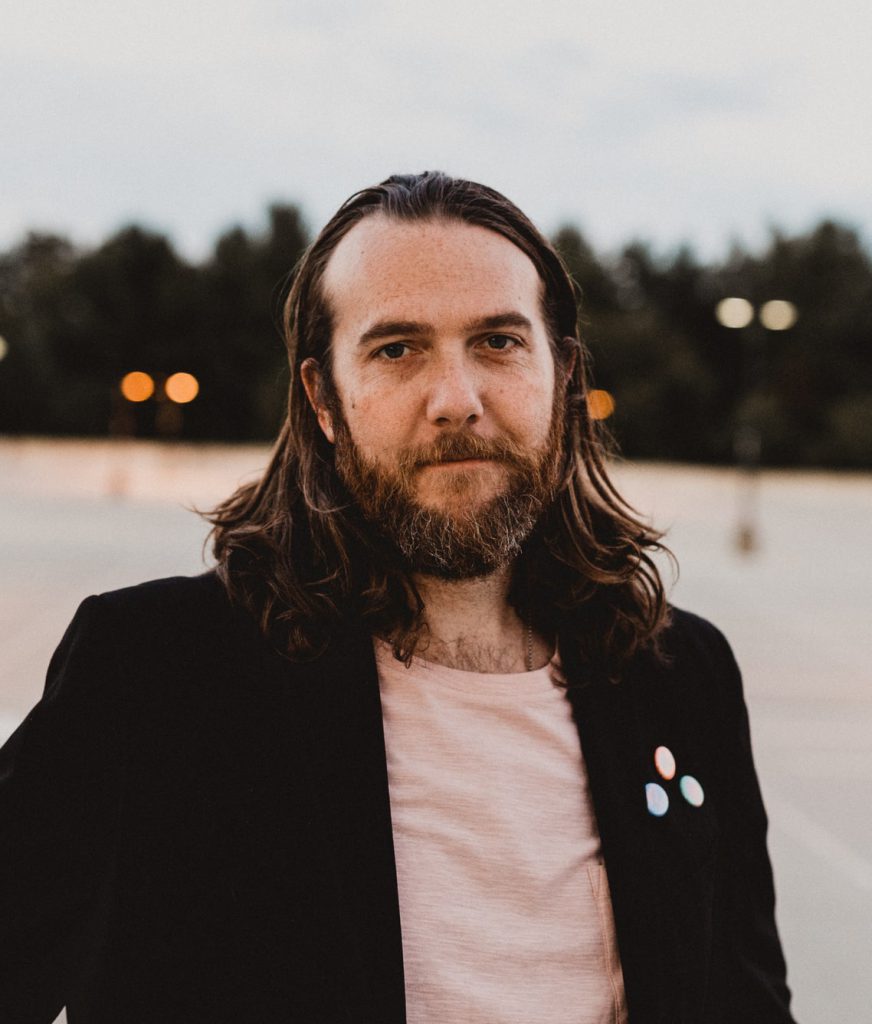John Mark McMillan is an artist and Platinum-selling songwriter. His song “How He Loves” has become a staple on the radio and in worship services worldwide.

Yet success has not made John Mark McMillan artistically complacent. His latest album, Mercury & Lightning, experiments with new sounds, pushes lyrical boundaries, and asks big questions about faith, anxiety, materialism and more.
In anticipation for John Mark McMillan’s upcoming concert at Southeastern Seminary, we had a chance to talk with him about faith, art, vocation and more in a wide-ranging interview.
To walk into a room with nothing and leave with a song… it still seems like magic to me.
We often address the intersection of faith and vocation. How does faith inform your work as an artist and musician?
Well, if we’re talking about faith as a system of belief then I’d say these days my goal is to be as honest as I think I can be, and let my faith contextualize or color the work naturally. It feels more genuine that way and comes across less like a commercial. However, if we’re talking about the nature of “faith” itself, we could have some conversation about the role of the artist. This role, as I see it, is to push into the unknown. Artists reach out into the ether and try to draw together new ideas from what seems like nothing at all. That takes a great deal of faith in and of itself. To walk into a room with nothing and leave with a song… it still seems like magic to me. So I think that writing songs is not only contextualized by my faith, but in a very real way is a practice of my faith.
Your lyrics are rich and complex, with allusions to the Bible, Greek mythology and current events. What are your greatest lyrical influences?
Honestly, I get hooked on words and phrases that I draw from any number of places at any specific moment. Rarely can I trace them back to their source, though I’m sure some initial idea or seed must have lodged itself in my brain from something I was reading or listening to. I like to read. I’ve been reading authors like Steinbeck and Hemingway lately. I think I was reading a good bit of Dylan Thomas when I wrote Mercury & Lightning.
How is your music different now than when you first began? In what ways has age, experience, marriage and parenthood changed your music?
I think when I began I was a lot more insecure about myself but more certain about what I wanted to accomplish. Now I think I’m a lot more confident but less sure about what I’m trying to create. When I was younger, I saw things in more simplified “black and white terms.” As I grow older, I see that most things are far more complex. The trouble is a song thrives on derision. You can only fit so much into a song, so the ability to distill things down to its most fundamental elements is helpful. This is a challenge when you begin to see things in a more nuanced light because the song requires that you only put a single foot forward or will only let you tell one side of the story. It’s harder to do this once you’ve seen so many “other sides.”
We celebrate our journey together in music and we feel “seen” in it.
Your music thoughtfully interacts with biblical themes, questions of faith and real-world issues. Why do you think music is such a powerful medium for addressing these topics?
Music is a place where we cooperatively work out issues like this; often where we push into the unknown together. People don’t want to feel alone in these conversations so music becomes a way we feel conjoined to the world. We celebrate our journey together in music and we feel “seen” in it. All of a sudden you realize you’re not the only one with a question. You’re not the only one with deep feelings on a subject and the music affirms that you’re human, which means we can have fellowship together in this.
“How He Loves” has become a staple on radio and in worship services. It’s been 14 years since you originally released it. What do you hope the enduring legacy of this song is?
I’m so thankful for this song and what it means to so many people, but I don’t think of it as being any greater or more important than any other song in my body of work. I’m more interested in what the story of my whole journey will sound like in 2079 when you revisit my records from 2005 through 2050 (or beyond)! As far as that goes, I hope people hear something of themselves and find the hope to see God in every ordinary corner of their lives.
Southeastern’s heartbeat is for the gospel of Jesus to be taken all over the world. How can the church use music in fulfilling the Great Commission to make disciples of all nations?
Well, for some context, my personal opinion is that making ‘disciples” and making “converts” are 2 different things. I think Jesus only asks us to do the former. To make a disciple is to essentially apprentice a person in the Jesus way of life which is the way of love. We love people through music by telling our stories, by bearing our souls and finding fellowship with others in this conversation. The only other thing I can say is that I think it’s something we will continue to cultivate over the course of our entire lives.






No comments have been added.